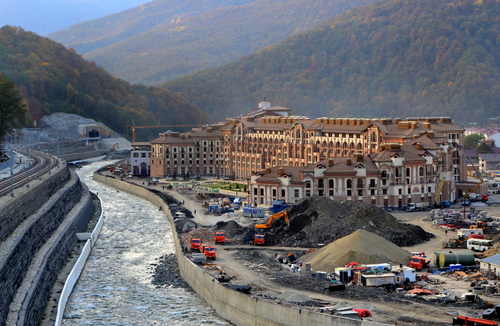Ecotourism, green tourism and localism
Foreign developers who are buying land to capitalise on ‘the beauty’ of an area, but who are not concerned with the ramifications of large-scale construction, are a concern . This is one reason why it is imperative that local communities be involved and become stakeholders in the future of the industry (Wood 2002; Holden 2008). Not only so wealth can be dispersed throughout the local community but so that environmental concerns will be a top priority. Who is more accountable than a local (business) person living and working locally?

If countries make ecotourism part of national and local development strategies they can get local businesses and communities involved and create regulation that will help monitor 'ecotourist' impacts. In the absence of this regulation and monitoring there are many instances where failings in the more mainstream industry are apparent (BAOBAB Travel 2010):
A study of tourism 'leakage' in Thailand estimated that 70% of the all the money spent by tourists end up leaving the country through e.g. foreign-owned tour operators, airlines, hotels, imported drinks and food.
Another study showed that out of a 100 school children in Kalutara, Sri Lanka, 86 children had their first sexual experience aged 12 or 13 years old. The majority of these experiences were with a foreign tourist.
A study on the requirements for the use of chemical fertilisers, pesticides and herbicides on an average golf course (in a tropical country) showed that 1500 kg of chemicals per year are needed and in addition it needs as much water as 60,000 rural villagers.